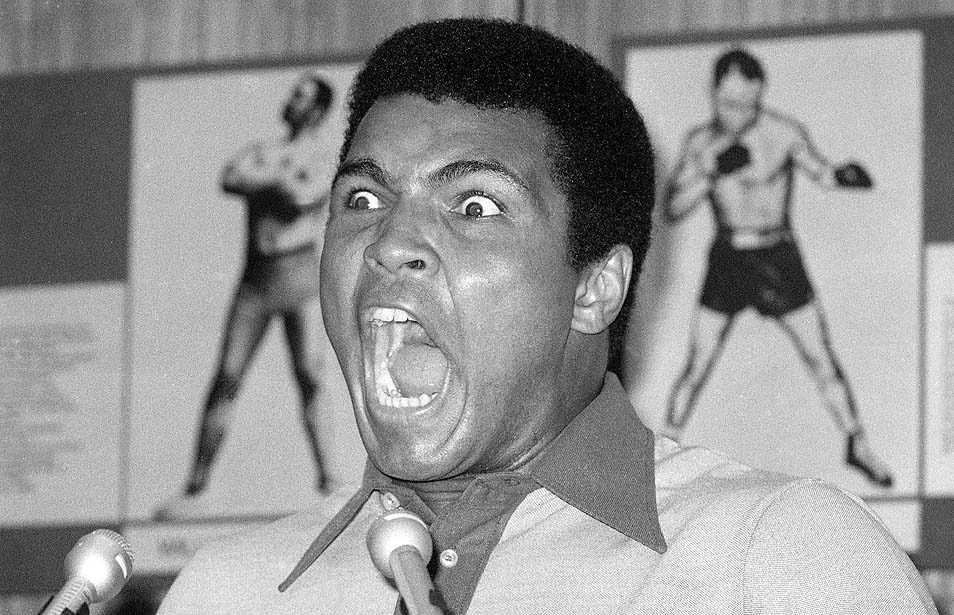Why Kanye Isn't As Crazy As He Sounds
From the Inkwell of: Bartholomew J. Worthington III
Look, I'll be the first to admit it. I WAS a huge Kanye West fan. I purchased each of his first 3 albums the day they were released as if they were fragments of the Gospel. I listened to most of Late Registration while writing this article. The beats, the wit, the Midwest slang. Kanye West was an artist that I didn't feel conflicted looking up to.
But somewhere along the way, Kanye lost me. I haven't owned a Kanye project since 808 and Heartbreaks, and that was one a friend of mine gave me, that I turned around and gave that copy to someone else who actually enjoyed the album. Then he hooked up with Kim Kardashian, a decision I didn't really question, until he decided to have a child with a woman who's initial claim to fame was dubious at best. But, recently, Kanye West has been less "a Gap like Banana Republic and Old Navy," and just more a outright diva. And not in a good way either. So when I came across an interview he gave while out in Los Angeles, I fully expected I was wasting minutes of my life that I knew I wouldn't be getting back. But as the interview progressed, I had an epiphany, "Kanye West has a point. He just didn't articulate it properly." Now, before anyone decides to skip to the comments section to berate me, hear me out. There are points in the interview, where, in typical Yeezy fashion, Kanye seems to simply be babbling about nothing of substance. When he started comparing Kim to Marilyn Monroe, I wanted to bang my head against the wall and scream, "Here this fool goes again." But throughout his interview, Kanye would make some valid economic points. These are three in particular that stood out from Kanye's diatribe. To Be In A Position of Power Requires Wealth When asked about why he seemed more frustrated now that he had achieved what many would consider to be success, Mr. West stated that there were approximately "...1,460 billionaires in the world, and there are only 7 Black billionaires." The rest of his point would get lost in typical Kanye fashion, but those numbers stuck with me. I did some quick research, and Kanye's numbers were pretty spot on. According to Forbes Magazine's annual report, in 2013 there were 1,426 billionaires in the world. Of these billionaires, only 7 were Black, and only 1 was African-American (you can probably guess who). The point that Kanye was attempting to make was that wealth provided a level of power that Black people simply don't have a grasp of. Now the argument will be made that many people have managed to affect change without having financial power, but the reality is that no great social change has been accomplished in the last 30 years without financial backing. Currently, Black America controls over $1 Trillion of consumer spending "power", yet we are only enabled to be consumers with no real control over our financial destiny. In other words, our consumer power doesn't translate into economic, and by extension, political power. We can purchase a lot, but we own very little. Recent situations where Black consumers have been unfairly targeted while shopping in high end retail establishments serves to further drive home the point that we are still marginalized. The most frustrating part is the realization that we really don't have the option of redirecting our resources away from those retailers who refuse to respect us. There are no Black-owned national premium retailers that we can support. Kanye made several references back to the impact money can have on one's ability to affect social change, and though the point may have gotten lost on those who may not have been able to discern the baby from the bathwater, it is no less valid. You Got To Cut Us In At one point in this interview, Charlamange presses Kanye on his seemingly contradictory statements on his relationship with various corporate sponsors, "How can you denounce the corporations...but then ask the corporations to back you?" At first, Kanye's response was just rambling, but then he got real, "I'm influential...same reason why you want me to come to your show, or why you want me to wear your product, is the same reason why you gotta involve me, and you gotta cut me in. People got fat without me, you gotta cut me in." He then went on to explain how when he negotiated his contract with Nike for sneakers he designed, they agreed to pay him a set amount, but when he asked about royalties, he was told he didn't qualify for royalties because he wasn't a professional athlete. To understand the significance of royalties, last year, Michael Jordan made an estimated $60 million in 2012 just off of the royalties of his Jordan branded sneakers. Nike proposed paying Kanye $4 million a year, a number that looks skimpy in comparison. Now, the reality is, no matter what Kanye might have you believe, Jordan is the most dominant marketing force in the world, a full decade after playing his last NBA game. But the point still remains. Jordan has actually made hundreds of millions more off of his deal with Nike alone than he ever did as a member of the Chicago Bulls. The significance of how much the Jordan brand, which controls 58% of the US basketball shoe market, contributes to Michael's bottom line cannot be overstated. There are many brands that have enjoyed million (even billion) dollar boosts to their bottom line because of exposure provided by high profile Black celebrities, yet these companies have never had to cut a check to these individuals. And while more and more Black celebrities are beginning to understand the power of their brand, many of us are still clueless about how powerful our stamp of approval is. The reality is, success isn't just in the form of an endorsement check that can be blown on a few trinkets and nights out with the crew, but rather in learning how to play the game of business. The game of business is one that many Black celebrities have yet to master, and it is to their detriment. It is only when we realize the power of our reach and combine it with a thorough understanding of how the business of branding works that we will truly be able to create Wealth. But for that, we will have to demand that they cut us in. You Need Ownership to Have a Voice This is probably the most powerful statement Kanye made in his interview. For most people it likely got lost when he started rambling about his battles with being accepted by luxury designers: "Rich people problems." But when Charlamagne questioned Yeezy on his preoccupation with money, Kanye made an extremely valid point, "You need to own something to have a voice at this point." Charlamange continued to press him on his answer, "You have a voice. When you got up on stage and said, 'George Bush doesn't care about Black people' you was using your voice." Kanye's reply was, "I can use my voice, but what happen if ya'll don't buy no other albums? When you got money can't nobody fire you." The point being made was significant: "No matter how much reach my voice may have, I can be silenced because I do not control the outlets that my music is distributed through." According to Arbitron, 92% of Black consumers listened to radio on a weekly basis. Yet, only 3.4% of the radio stations that we listen to are Black owned. Increasingly, Urban format radio stations are owned by large conglomerates such as Clear Channel, the radio station-owning behemoth that has a significant presence in 247 of the top 250 markets. Combined with the effects of Arbitron radio ratings that consistently under-measure the reach of Urban formatted stations, and you have increasingly homogenized radio programming that excludes many regional artists and on-air personalities. So while hip-hop is a billion dollar industry, and Urban radio is a top 3 format in many markets, Blacks own very little to none of the media that is driven by our talents. It should then come as no surprise that this year's American Music Award winners for the Hip-Hop AND the R&B categories were both white artists. Kanye understood that in order to truly have a lasting voice, ownership is absolutely critical. A record label or radio conglomerate can keep an artist in line simply by turning off his microphone. It is by no means a coincidence that the age of million dollar endorsement deals is also the age of minimal high profile athlete political engagement. An owner cannot be marginalized as easily. Each of these lessons is a teachable moment for us as a community at large. Many of our leaders have been focused on achieving social justice when our true aim should be economic empowerment. Now, more than any other time in this country's history, money truly is power, and wealth is the new currency of the powerful. A powerful lesson I never thought I would learn from one Mr. Kanye West. Turns out he may not be so crazy after all. |
Popular Articles
|
-
Home
- Learn To Fish
- Shoulders of Giants
-
Mind On My Money
- 6 Terms to Master Financial Literacy
- Black Wealth By The Numbers
- Blackonomics 102: State of The Black Owned Businesses
- Blackonomics 101: State of the Black Economy
- 25 Resources For Getting Your Business Off the Ground
- Black Investing 101: Invest In Stocks For Your Kids
- How to Introduce Your Child to Money - Infographic
- Black Investing 101: Invest In Companies You Support
- Black Personal Finance 101
- Getting on Track
- Managing Debt >
- Understanding Credit >
- Unruly Intellectual Blog



